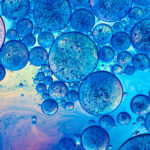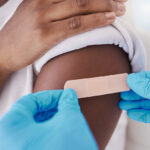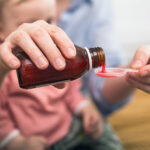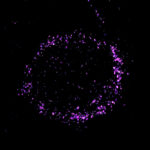HPV vaccine: What families should know
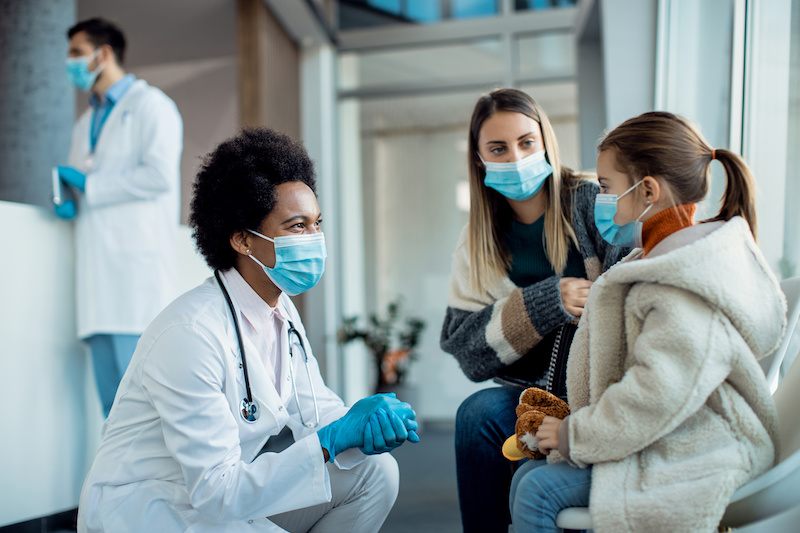
Nearly 42 million Americans are currently infected with human papillomavirus (HPV), and most adults will be infected at least once in their lives. For most, HPV goes away on its own. If it doesn’t, it can lead to certain cancers. HPV can be transmitted sexually or by nonpenetrative skin-to-skin contact. Often, HPV does not have signs or symptoms, so you can have and spread HPV without even knowing it.
Vaccination offers prevention
Fortunately, the HPV vaccine can protect your child against certain types of HPV before they are exposed to the virus. The earlier they are vaccinated, the better, so it provides the greatest degree of protection for the longest period of time. The American Academy of Pediatrics recommends all children, regardless of gender, get vaccinated against HPV starting at age 9. Children who receive the HPV vaccine before age 15 will need two doses for full protection:
- Dose #1: 9 to 11 years old
- Dose #2: 6 to12 months after first dose
Those who start the HPV vaccine at age 15 or older will need three doses over a period of 6 months.
HPV vaccines: Understanding the basics
For more insight, we spoke with experts from the Boston Children’s Primary Care Alliance and Children’s Hospital Primary Care Center (CHPCC).
Dr. Richard Garber of Framingham Pediatrics acknowledges that some parents are reluctant to talk about the virus. “There is a lot of negative chatter on the internet, partly because the virus can be sexually transmitted, and that brings several connotations into the vaccine and to the virus,” he says. But that shouldn’t keep families from understanding its value. “This vaccine is important because it not only prevents cervical cancer, but also protects against other types of cancers that are becoming more common, including throat, mouth, and rectal cancer.”
There are three different types of HPV vaccines, all of which are licensed by the U.S. Food and Drug Administration (FDA). However, the only HPV vaccine currently distributed in the United States is Gardasil 9. According to the CDC, the HPV vaccine effectively reduces infections and precancers (the abnormal cells on the cervix that can cause cancer). Since 2006, when the vaccine was recommended in the United States, HPV infections and precancers have decreased substantially.
Dr. Corinna Rea, a pediatrician at the CHPCC, explains, “The vaccine protects against nine HPV types, including the seven types that cause most HPV-related cancers, and is estimated to prevent over 90 percent of cancers caused by HPV. It’s very important for children to be vaccinated before they are exposed to the virus, and in our practice we vaccinate starting at age 9. The vaccine actually works better when given at an earlier age.”
Dr. Garber agrees. “It’s a crucial vaccine, and we have been strong proponents,” he says. “The vaccine is worthwhile and recommended to protect your child.”
The mild side effects of the HPV vaccine include pain or redness where the shot was given, dizziness, nausea, and headache. Evidence indicates that the vaccination is safe, effective, and the protection it offers outweighs the possible side effects.
Contact your Boston Children’s Primary Care Alliance provider about the HPV vaccine or visit the Children’s Hospital Primary Care Center (CHPCC).
Related Posts :
-

A toast to BRD4: How acidity changes the immune response
It started with wine. Or more precisely, a conversation about it. "My colleagues and I were talking about how some ...
-

Study highlights the severity of acute necrotizing encephalopathy in kids with the flu
For most children, influenza (flu) usually means unpleasant symptoms like a fever, sore throat, and achy muscles. But for a ...
-

Which pain medication is right for your child? What a pediatrician wants parents to know
There’s no shortage of safe and effective pain medications for children. Acetaminophen (commonly known as Tylenol), ibuprofen (Motrin, Advil), ...
-

A new druggable cancer target: RNA-binding proteins on the cell surface
In 2021, research led by Ryan Flynn, MD, PhD, and his mentor, Nobel laureate Carolyn Bertozzi, PhD, opened a new chapter ...


